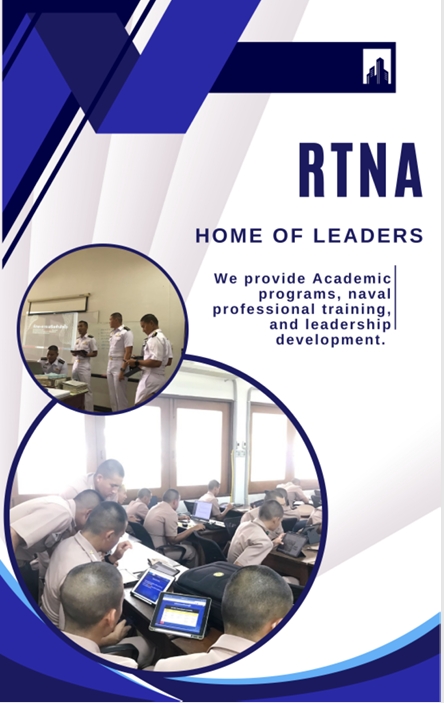Investigating the Learning Behaviours and the Perceptions of Graduate Students towards the Online Intensive English Programme of Sukhothai Thammathirat Open University in Thailand
Keywords:
Online learning, Open University, Learning Behaviours and Perceptions, Intensive English ProgrammeAbstract
The Intensive English Programme at STOU has been an onsite course for years helping students who are required to meet the English proficiency standards for graduation. During the pandemic, the entire course has radically shifted to online platform through MS Teams (for teaching and learning) and Moodle (for evaluating). This paper aims to investigate student’s learning behaviors and perceptions of the online learning process. To carry out this study, the 30 students from 2 groups were observed during the classes and the focus group interview was conducted through MS Teams. After observing students’ behavior in 4 aspects: 1) online learning tools 2) learning motivation 3) Instructor-students and Students-student interactions 4) English content, some students had technical and Internet issues during the course. Some lacked of motivation and interaction with the instructor and other students. As it is an English language subject, some students who are not familiar with the language and some students with advanced English language skills may not pay much attention in class. Therefore, some of them failed to reach an acceptable level of proficiency in 3 English skills at the end of 4-day course. However, in the focus group interview aimed to explore 3 aspects; 1) the use of learning tools 2) lesson content and supplementary materials and 3) instructors' teaching styles. Students stated that there were advantages of online learning in this course--low costs, convenience, and flexibility, they still encountered difficulties in using the learning tools. The lesson content was challenging; nevertheless, the instructor could effectively teach to ensure understanding of the materials. If there are still students facing limitations in terms of learning tools and facilities, which the university needs to consider, this research suggests that hybrid learning might be a suitable approach for ongoing learning effectiveness for students.
References
Ashraf, M. A., Yang, M., Zhang, Y., Denden, M., Tlili, A., Liu, J., Huang, R., & Burgos, D. (2021). A systematic review of systematic reviews on blended learning: Trends, gaps and future directions. Psychology research and behavior management, 14, 1525–1541. https://doi.org/10.2147/PRBM.S331741
Barbour, M. K., & Reeves, T. C. (2009). The reality of virtual schools: A review of the literature. Computers and Education, 52(2), 402-416.
Baticulon, R. E., Sy, J. J., Alberto, N. R. I., Baron, M. B. C., Mabulay, R. E. C., Rizada, L. G. T., Tiu, C. J. S., Clarion, C. A., & Reyes, J. C. B. (2021). Barriers to Online Learning in the Time of COVID-19: A National Survey of Medical Students in the Philippines. Medical science educator, 31(2), 615–626. https://doi.org/10.1007/s40670-021-01231-z
Brown, A. H., & Green, T. D. (2019). The essentials of instructional design: Connecting fundamental principles with process and practice. Routledge. https://ikhsanaira.files.wordpress.com/2016/05/the-essential-of-instructional-design.pdf
Donthu, N. & Gustafsson, A. (2020). Effects of COVID-19 on business and research. Journal Of Business Research, 117, 284-289. https://doi.org/10.1016/j.jbusres.2020.06.008
Erarslan, A. & Arslan, A. (2020), Online Learning Experiences of University Students in ELT and the Effects of Online Learning on their Learning Practices. Language and Technology, 2(1), 44-58.
Guo, C., Shea, P. & Chen, X. (2022). Investigation on graduate students’ social presence and social knowledge construction in two online discussion settings. Education and Information Technologies, 27, 2751–2769. https://doi.org/10.1007/s10639-021-10716-8
Hodges, C., Moore, S., Lockee, B., Trust, T., & Bond, A. (2020, March 27). The difference between emergency remote teaching and online learning. EDUCAUSE Review. https://er.educause.edu/articles/2020/3/the-difference-between-emergency-remote-teaching-and-online-learning
Joshi, O., Chapagain, B., Kharel, G., Poudyal, N. C., Murray, B. D., & Mehmood, S. R. (2020). Benefits and challenges of online instruction in agriculture and natural resource education. Interactive Learning Environments, 30(8), 1402–1413. https://doi.org/10.1080/10494820.2020.1725896
Kramer, A., & Kramer, K. Z. (2020). The potential impact of the Covid-19 pandemic on occupational status, work from home, and occupational mobility. Journal of vocational behavior, 119, 103442. https://doi.org/10.1016/j.jvb.2020.103442
Li, X. W., Ye, W. J., and Zhang, Q. H. (2020). Research on the index model of teacher-student interaction behavior in the environment of “internet+teaching”. Res. High. Educ. Eng. 3, 157–162.
Ma, J., Han, X., Yang, J., & Cheng, J. (2015). Examining the necessary condition for engagement in an online learning environment based on learning analytics approach: the role of the instructor. The Internet and Higher Education, 24, 26–34. https://doi.org/10.1016/j.iheduc.2014.09.005
Martin, F., & Bolliger, D. U. (2018). Engagement matters: student perceptions on the importance of engagement strategies in the online learning environment. Online Learning, 22, 205-222. https://doi.org/10.24059/olj.v22i1.1092
Martin, F., Wang, C., & Sadaf, A. (2018). Student perception of helpfulness of facilitation strategies that enhance instructor presence, connectedness, engagement and learning in online courses. The Internet and Higher Education, 37, 52–65. https://doi.org/10.1016/j.iheduc.2018.01.003
Moore, G,M. (1993). Three types of interaction: New Perspectives. New York: Rout-ledge.
Quin, D. (2017). Longitudinal and contextual associations between teacher–student relationships and student engagement: A systematic review. Review of Educational Research, 87(2), 345–387. https://doi.org/10.3102/0034654316669434
Soni, V. D. (2020, June 18). Global Impact of E-learning during COVID 19. SSRN Electronic Journal. https://ssrn.com/abstract=3630073
Sukhothai Thammathirat Open University (STOU). (2022). Announcement on the English language proficiency examination scores regulations. https://www.stou.ac.th/thai/grad_stdy/Masters/EN/2565/DrEN65-1.pdf
Yajie, C., & Jumaat, N. F. B. (2023). Blended learning design of English language course in higher education: A systematic review. International Journal of Information and Education Technology, 13(2), 364-372. https://doi.org/10.18178/ijiet.2023.13.2.1815
Zhu, E. (2006). Interaction and cognitive engagement: An analysis of four asynchronous online discussions. Instructional Science, 34, 451-480.

Downloads
Published
Issue
Section
License
Copyright (c) 2024 Royal Thai Naval Academy

This work is licensed under a Creative Commons Attribution-NonCommercial-NoDerivatives 4.0 International License.
The author has the sole responsibility for the material published in RTNA Journal of Social Sciences, Humanities, and Education, which the editorial team may not agree on that material.
RTNA Journal of Social Sciences, Humanities, and Education owns the copyright of the text, the illustration, or other material published in the journal. No parts or the whole of the material published may be disseminated or used in any form without first obtaining written permission from the academy.





